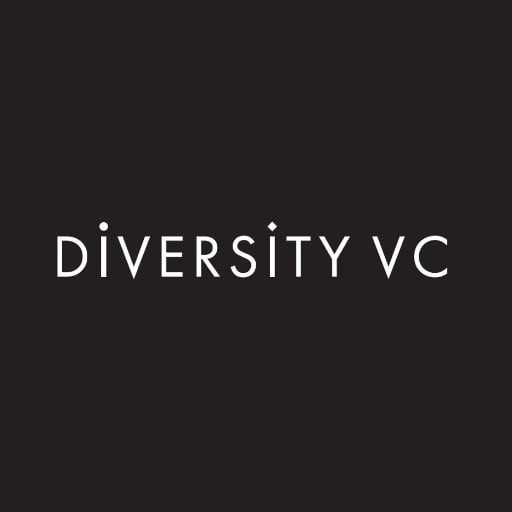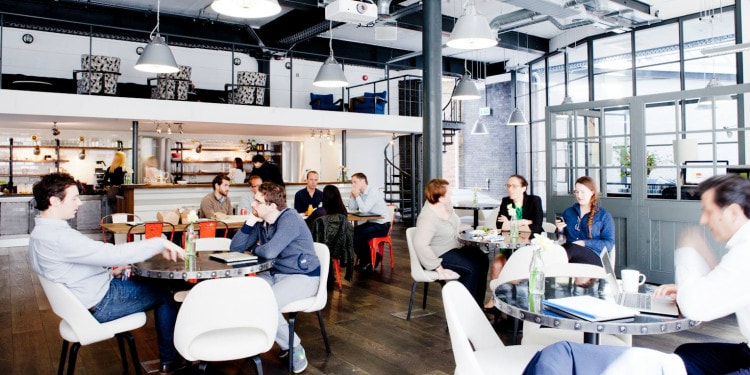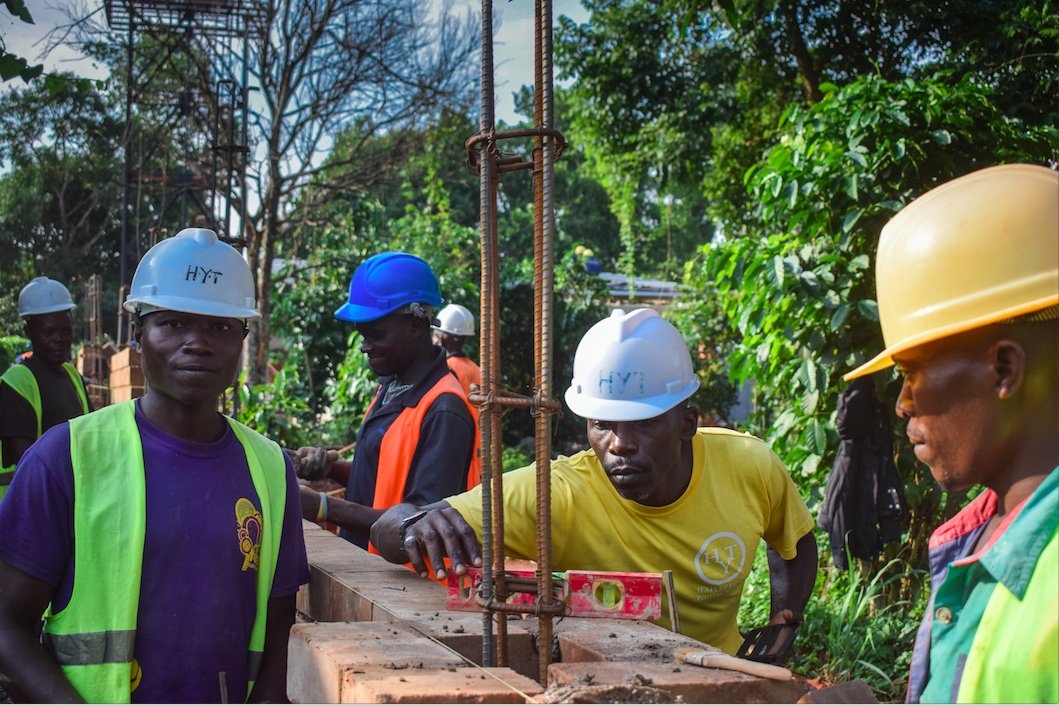Anna Boffeta is an associate at Balderton Capital, a Venture Capital (VC) firm. Prior to joining Balderton she worked with a business angel, investing and advising early-stage UK startups. She has also worked as a data product analyst at YipitData in New York, and as an associate in the investment team at Global Infrastructure Partners, investing in the energy sector. Her career started in telco M&A at Barclays, where she worked on deals across Europe and the USA. Anna holds two Master’s degrees in International Business from HEC and the Indian Institute of Management in Bangalore, and a Bachelor in Management from HEC. She is also a co-founder of Diversity VC, an organisation which aims to create a fairer and more representative venture capital industry.
The following is a transcript of our interview with Anna Boffetta. Some of the questions have been edited for brevity and clarity.
One of our main focuses at Impakter right now is gender equality issues, for example the HeForShe campaign started by UN Women. To start with, I wanted to pick your brain on your views on gender equality, especially as a woman in VC and in a company such as Balderton Capital that mostly invests in technology.
I think it’s a very timely issue in the Venture Capital world, or more generally, in technology. I was one of the four co-founders of Diversity VC – that was a little over a year ago, back in April. Our goal was to open up the VC industry from the outside to the inside, that is, focusing on investors and founders. This is obviously from a gender equality perspective but also more broadly, including sexual orientation, ethnicity, background, education, etc. Our first report is now available [in the UK]. We have four different branches, and one of them is The Data Project.
 The Data Project focuses on gender equality and that was the first we decided to tackle. We started with scraping websites of companies in the UK – from very early stage seed fund all the way to growth funds. It is easier to collect information on gender, because you can see if the picture on the website is a female or a male. It’s very binary. It is easier than looking for social background, for instance, or sexual orientation, you cannot scrape for that.
The Data Project focuses on gender equality and that was the first we decided to tackle. We started with scraping websites of companies in the UK – from very early stage seed fund all the way to growth funds. It is easier to collect information on gender, because you can see if the picture on the website is a female or a male. It’s very binary. It is easier than looking for social background, for instance, or sexual orientation, you cannot scrape for that.
We also obviously cross-checked the data as a general industry trend – the number of women in the workspace in the UK in tech VCs is about 13% average across all the different functions. But, this is even lower if you consider investment, which I am a part of. So, within a VC you have the investment team, which makes decisions on what to fund; then you have executive assistants, accountancy, finance, PR, talent. I would say that the number drops to 6% in investment teams. And it drops even lower when you look at partners at firms. So, it’s really, really low.
This is not big news. It’s the same in the US. There’s a couple of percentage points difference, but it’s close, about 15%.
The main reason for this trend is that VC is a young industry, something people often forget. It didn’t exist twenty-five years ago. It used to be a second career, something that you did once you exited your previous job and had some money to invest. And you did that with a couple of friends – that means people who are usually similar to you. So it started that way and in terms of diversity, it is very outdated.
For many years, the VC world was a very closed club that you entered through friends of yours, and it is fairly new that VCs have more junior staff. What is really new is that VCs are opening up completely and trying to be outspoken about their aims. Now they are very easy to reach, but this wasn’t the case before. In the past you would need two introductions to speak to a VC in Silicon Valley, and now you can just tweet at them. The industry is changing in the right direction, but it started from a low point.
Can you tell me about your journey up until now? You started Diversity VC, but what led you to this? Was it always your goal to go into companies like this?
No, [she laughs]. I went to Business School, after that I moved to New York because I have a US passport and because I wanted to live in New York City. The fastest way for me to move was through banking, M&A, telecom and internet. So, in tech. I did it, but I wasn’t a big fan. I studied math, which is a male dominated field in France, I went to “prépa” [CPGE to prepare for university] which is exactly the same, I went to Grandes Écoles which is exactly the same, and then I went into M&A telecom [mergers and acquisitions in the telecom industry], again the same. Then I moved to JP which is an infrastructure and energy fund, again the same, doing financial engineering.
By then I knew that the two industries I was interested in were tech and energy. Actually I didn’t find energy all that interesting as it is very regulated and long term. Tech is a lot more fun. So I decided to go back into tech. At that stage, what I needed were technical skills that I hadn’t acquired in school. I’d studied math but applied math such as statistics, not computer science. This meant I had no engineering skills. I joined a startup to get those skills, and I found a role that was perfect because they needed someone with mathematical knowledge. They provided training for coding, and so I did that which was also fairly male dominated, however not as much compared to the other industries I’d been in.
![]() Afterwards, for personal reasons I moved to London, with my boyfriend – now husband. I didn’t know anyone in London, and I knew I wanted to stay in tech, so I started meeting with early stage investors. Balderton convinced me to join after six months; they were looking for someone who had operational experience and they were reshaping the company. Balderton used to be Benchmark US, which is a huge fund in Silicon Valley. Three funds were invested under Benchmark and now the third is under Balderton. There was a big shift towards creating a more operational team, and so the two people they hired last year, myself and Colin, have both startup experience.
Afterwards, for personal reasons I moved to London, with my boyfriend – now husband. I didn’t know anyone in London, and I knew I wanted to stay in tech, so I started meeting with early stage investors. Balderton convinced me to join after six months; they were looking for someone who had operational experience and they were reshaping the company. Balderton used to be Benchmark US, which is a huge fund in Silicon Valley. Three funds were invested under Benchmark and now the third is under Balderton. There was a big shift towards creating a more operational team, and so the two people they hired last year, myself and Colin, have both startup experience.
The opportunity with Diversity VC is just that I have always functioned in very male dominated industries and I am more comfortable in that kind of work environment than other people.
The point of diversity is that diversity improves results. You hear so many stories about it, especially from the United States. It is difficult to make investments in things that you don’t know, and that you don’t really understand. But the more diverse your team, the higher the chances that you understand something better.

Have you had any successes so far?
Our report is the first one that has been done in the UK, and it got a very successful press coverage, and audience.
On top of it, we established an internship program. This is actually what I’m currently doing – creating a “pathway”: I go to universities, in and around London to start with, to explain what VC is about in today’s tech ecosystems. It is picking up elsewhere as well, people are doing it in Paris, in Stockholm.
If you are genuinely interested in technology, or you use Uber and Deliveroo every day, you should know what VC is even if you don’t want to work in it. So we try to open up the pipeline of people getting in VC but also of people getting funded by VC.
The report was a big step. We have about 500 hundred people on mailing lists and databases that get back to us on a regular basis, and we have established monthly VC dinners that have been picked up by all other funds in London. Before we used to operate only within Balderton, now it’s something that is expanding. We have built a very strong network around gender equality. We have established the internship program, for which we source candidates and then we distribute them across different funds in London. This year we are only doing it for 5 funds, but the goal is to do it for all funds.
So far you have started with gender equality, what would your next steps be?
Two new things coming up on the data side: a deeper subset analysis of gender equality, and the first one is on compensation, soon coming out, and the other is opening up new research on ethnicity. The idea is to get a view of how the numbers could be, and the point is we always want to work in three ways. Let’s say you are a woman in VC, how do you think you are compensated? As much as a man, higher, lower? So it is based on a data level, and also on a feeling, personal level. But all anonymous. We are currently finalising all the things we will do next year, and those are the two key projects coming up. We will always go deeper and deeper in one vertical and opening up in the other.
In the photo: Communal work space in Balderton Capital office, London.
Is your work with Diversity VC transferable into Balderton?
I think Balderton has evolved a lot with new partners in the last three to four years… and me – the first female in the investment team. In terms of hiring path for the investment team, the slower pace is a function of whether there is an opening. And people don’t move out every year. In terms of internship, yes, there are changes that Colin and I have been able to make; we have reshuffled the whole internship program and it has now a very diverse profile. Our other initiative that I’m very happy about is the hosting of an ethics summit in October at Balderton with other funds. It’s good timing in the light of the many scandals in Silicon Valley, but it’s also good business practice. We are drafting a code of ethics for Balderton and working to gather the panel, the different verticals we want to tackle, reaching out to speakers. This is definitely something that has come to the VC industry.
Would you say that less women are attracted to this type of work?
Most of the candidates that we get, except for the ones that we resource, are coming from traditional industries, like consulting and banking. And those are man heavy industries, not specifically tech related. So I would say less women than men, and we probably have even less women in the pool that we are targeting.
Do you think that the disparities that are found in VC firms then trickle down into the companies that VC firms invest in?
That’s a very good question. We’re trying to. Part of our ethics code is to prioritize these issues, and gender equality is obviously one of them. The first need of our company is to hire tech talent. Number one is tech, number two is sales. They need engineers and they need sales people. So, for the short term, we are not pushing it but it is something we try to emphasize. If you want to get to the next level. We envision it as part of our values at Balderton. I don’t know if it is a good strategy, but it is definitely something we talk a lot about.

Have you found it particularly difficult to succeed in this sector as a woman?
I would give you the same answer I gave when someone in finance asked me that. It’s not particularly difficult if you don’t get shut down. Because that’s kind of the idea: you don’t get half of the jokes because they’re about football and you don’t care, and you don’t try to care. Perhaps it’s the decision you make that you don’t care, which is not always easy to make. You have to be strong enough to know what you’re worth without it. Then it actually becomes an advantage, because there are so few women in this industry that everyone remembers you. It is not an easy thing to live with, but I don’t think it is something you can stop, just something you have to live with.
If you’re not interested in jokes about football, do you feel socially removed from certain aspects of the company?
Not more than anything else. It’s true in this industry as well as others. If you have a very male dominated background, then you obviously have a different mindset. But it’s not worse or better here. Although maybe it’s better here.
Would you say that there are advantages for companies that have women on the board or in their senior staff, in terms of funding or anything else?
I don’t think that there is an impact on funding but there is one on end results. Which goes back to my point about diversity, how it improves performance. In terms of funding it’s not something that is a priority right now. Again, that is part of what we are trying to think about for the upcoming ethics summit. Should we consider this earlier on, and not just when scandals break out? As of now, no, but it might change.

I was reading how male dominated VC get much more funding than female-headed VC firms, do you believe this is an active discrimination?
I cannot speak for all VCs, but not at all here at Balderton. What I can tell you is this: I have been here for a year and a half and I have seen very few female founders. The way we source, it comes from two sides.
The first is the network, an established community of earlier stage investors – so angel and seed, and professors, you name it – those people push companies to us. We maintain a strong relationship with them.
The second is we look for them. Every one of us at Balderton has specific focuses. Let’s take an example: healthcare. Let’s say a machine learning computer vision diagnosis app. I find a couple of companies in that space and I like them. One looks more efficient than the other, so I am tempted to bet on it. But I will look for all the others that exist in this space. First to understand better and then to determine whether this is the company we want.
In both directions, the number of female founders we found is very low, really really low. One thing we might want to do in the future is to track the number. Currently I don’t have an official number, but I would definitely tell you that in the past month, I’ve met one woman. Yet I meet new people every day. So that’s to give you an idea. Someone else might have met three. But I bet no one has met five. I don’t have the number but that would be an interesting one. We invest in 8-10 companies a year.
It’s not that we actively discriminate but it’s statistics. Say you start with 2,000 companies, then from 2,000 you get down to 10; from those 2,000 only 10 had women, thus, the probability that it gets to 0 is very high. Just because of probabilities, nothing else. I would say that this is what I see at Balderton. Plus, on the other hand, we look for sectors that we are interested in and we don’t find a lot of sectors with only women.
You don’t want to swing it the other way either, you don’t want to only choose women.
No, this is not our thesis [goal]. You have funds such as AllBright, for instance, that are focused on funding female founders. But it’s in their mandate. There are LPs [limited partners or investors in VC firms] that have committed to this. But our investors have committed to other theses. We cannot shift our focus.

What would you say has been – if you have had one – your greatest challenge in the VC world?
On a personal side, there are a lot of advantages in joining Balderton, it is such an established brand. The one disadvantage is that you also have to create your own brand. You leverage the name of the fund to meet people, then the real challenge is to get people to say “I want to meet Anna at Balderton”, not “I want to be in Balderton and okay it’s Anna”. It’s going well. I find it empowering as a woman.
Do people ask you for advice to enter in the VC world?
You have people that reach out to get advice. What I do, if they are students coming from the same school, is to tell them when I will be at their school. If they are random people, I always try to get a couple of calls in a week. I always give them at least 20 minutes when I come home after work. Just to give insights. I was lucky to end up here, it wasn’t planned, so it’s nice.
Have you noticed any major differences between the culture here and the US in terms of equality in the workplace?
Not really. One thing: in the US, it is way more focused on sexual harassment. So people really avoid doing certain things. Here in London, it is more European, people are more relaxed in the work environment. Obviously you get flirtatious situations, but this happens everywhere.

I found that the US has a stereotype about it, they like to fill a quota, whether it is a university or anything else.
This quota drops after a while. I found it was true when you start, for example in banking. Then as the years go on, it doesn’t exist anymore. But I am still in the early years of my career so when you want to have kids or start a family, I don’t know exactly how that is going to impact my career. I think about it, and here at Balderton I am liking it. Tech companies, at least ours, are really being practical about this, developing policy on maternity and paternity leaves etc.
We need to look forward to career-building, for example the availability of stock options, you have to have a plan of how you handle vacations and leaves. That is something we try to be focus on here at Balderton. It matters for startup firms, when its staff is just being formed.
Have you been involved with anything other than Diversity VC?
Thanks to Diversity VC we are now involved with many other organizations, mostly tech related, but I’ve not had the chance to go outside of that yet. Earlier I used to do a lot of things with the UN because my father worked for them for twenty years. I spent a lot of time with UN-related organisations, mostly for education. It is definitely something that we are looking into.
There is one interesting program that we are looking at. It’s based on the skills you have and it allows you to take half of your paid vacation, and the company contributes almost 10,000 pounds for you to go work in something like, say, the Peace Corps. It is mostly for traditional industries such as banking, consulting and media, now they are starting to reach out to VCs. But tech is different from banking and consulting, timing is more difficult to predict. This year it is probably too much to set up, but we are looking into it for the future.
What is next for you?
My main concern at present: the ethics project.
In ethics you have three kinds of issues. You have ethics and technology: the application of a specific technology, for instance, artificial intelligence and how it will impact productivity and jobs, and in the long term how it will impact human relations. Then you have ethics in a company, and ethics of the company in relation to the world. Within a company you have issues that go from gender equality to working conditions, to use of resources. Then you have issues of ethics of the company vs the outside world. This is the easiest category, data privacy and how you handle it. There are very good case studies in each category. I am a big believer that in ten years people are going to want to get more than just a job out of their employer. Ethics are going to play a big role in this.

If you look at it today, why are startups so competitive? In today’s job landscape it is because they offer more than a workspace. In the US it’s crazy, you have unlimited vacations. This is just an example. The point is, as time goes on and you get more and more efficient technology in your job, what you want to get out of it is something a little bit more meaningful so you cannot ignore these three sides of ethics. How is your technology being used, how do you act within your company and how does your company act within the broader landscape. I would definitely like to do more on that.















